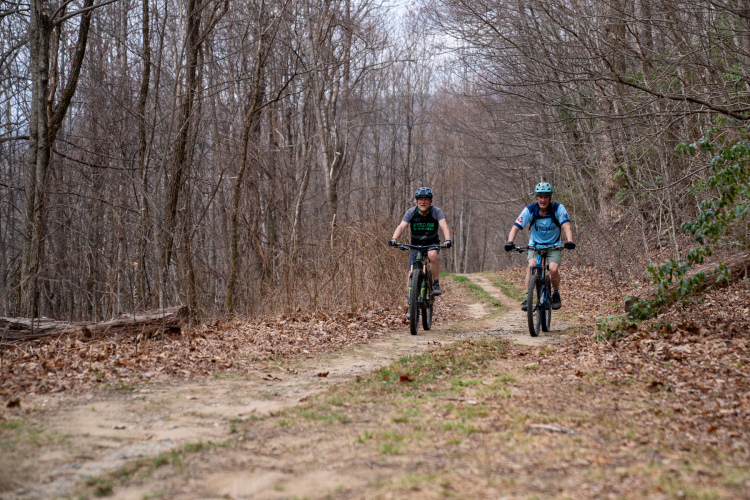
The world’s highest cycling governing body, the Union Cycliste Internationale (UCI) announced major changes to their policy surrounding transgender athletes in competition on Friday.
The new policy states that female transgender athletes who have transitioned after male puberty will not be allowed to race in women’s events on the UCI International Calendar, in all categories and disciplines.
In a press release, the UCI said they decided on July 5th to adopt a new policy following a seminar near the end of June where various stakeholders, including trans- and cisgender athletes, and leaders from the scientific, legal, human rights, and sporting institution communities presented their positions.
The UCI said for races on the UCI Cycling for All International Calendar and UCI events, the men’s category will be renamed Men/Open and any athlete who doesn’t meet the conditions for participation in women’s events will be admitted without restriction.
The UCI’s decision follows other recent policies announced by British Cycling and the popular American gravel event the Belgian Waffle Ride which also limit transgender athletes participating in female categories.
The reasoning
Before the announcement, the UCI allowed transgender females to race in events if they identified as female and demonstrated that their total testosterone level in serum was below 2.5 nmol/L for a period of at least 24 months.
For males, a regular testosterone level is between 10 to 35 nmol/L and between .5-2.4 nmol/L for biological women.
In the UCI’s decision, they said lowering testosterone levels may not be enough to fully negate the biological advantage and benefits of male puberty. Gender-affirming hormone therapy can also affect every individual athlete differently and hold different outcomes, they said.
“Given the current state of scientific knowledge, it is also impossible to rule out the possibility that biomechanical factors such as the shape and arrangement of the bones in their limbs may constitute a lasting advantage for female transgender athletes.”
In their statement, the UCI said the organization’s Management Committee considered the ability for transgender females to compete in events against other females. The UCI considers females a protected class and the committee, considering the variables for transgender athletes, felt that it was necessary to change their policy to “protect the female class and ensure equal opportunities.”
The UCI cited a study by Xavier Bigard, published in May which examined the knowledge of effects of gender-affirming treatment on performance in transgender female cyclists.
Bigard’s study noted there is limited data on the changes in performance regarding transgender women and none of them have studied cyclists. Research shows changes in physiological determinants of performance with gender-affirming hormone therapy, such as lean body mass and muscular strength and power. Sex differences in determinants of performance in cycling are likely reversed after six to eight months of treatment, giving the example of aerobic capacities, but only slightly reversed considering muscular mass, strength, or power after two years of treatment, and that bone structure would be unaffected.
“Based on current knowledge, it is therefore impossible to confirm,—that at least 2 years of GAHT (gender-affirming hormone therapy) with a target plasma testosterone concentration of 2.5nM are sufficient to completely eliminate the advantages associated with the increase in testosterone during puberty in males, or that despite the hormonal transition treatment, an advantage persists on cycling performance after 2 years of GAHT.”
USAC will follow the UCI’s lead
On May 26, British Cycling, the governing body for cycling events in Great Britain announced changes to their policies regarding transgender athlete participation following a nine-month review, 14 focus groups, a “full medical science review,” an independent audit and external legal advice.
The review resulted in the consolidation of the men’s category into a new ‘Open’ category, leaving the women’s category in place. Transgender, men, women, non-binary individuals, and men will all compete in the open category, while the women’s category will be strictly for those who were “assigned female at birth and transgender men who are yet to begin hormone therapy.”
Just one week ago, the Belgian Waffle Ride (BWR), a premier gravel bike race with events across North and Central America released a new policy and category changes as well, with a different implementation.
The BWR would leave a women’s category for athletes who were born female, a male category for those who were born or identify as male, and an open category for “all racers, regardless of gender identification.” Each category will have equal amounts of prize money.
The announcement on Instagram came after Austin Killips, a transgender female won the women’s category at the North Carolina event on June 10th and placed 2nd at the BC event in May. Though the BWR’s post received an enormous outcry from trans advocates, BWR co-founder Michael Marckx told Velo the response “has been overwhelmingly supportive, with approximately 70 percent of respondents voicing support.”

USA Cycling (USAC) also confirmed to Velo it will revise its policy and follow their changes.
While the issue of transgender athletes competing in female sports categories has become one of the most contentious topics in recent years, it’s hard to say many athletes it may affect at the highest level of mountain biking.
Kate Weatherly is one, if not the only transgender athlete racing in World Cup mountain bike events. In an email to Singletracks yesterday, Weatherly said she is not aware of any other trans athletes in World Cup mountain biking. Weatherly began racing World Cup downhill events in 2018 and has placed in the top 10 in several women’s World Cup rounds and has twice been awarded the New Zealand National champion title.
She also told us she is not sure how it will affect which category she competes in since she transitioned during her male puberty and not before or after.
On the change in policy on Friday, Weatherly told Singletracks, “My general feeling is that exclusionary policies justify bigotry in our community and a one size fits all policy will never truly meet the needs of our sport and continuing to go down this route shows a willingness to take the easy route when dealing with difficult conversations.”
In a 2019 interview with Singletracks, Weatherly said she began her transition three years ahead of racing an elite level women’s event and spoke to her competitive results in the women’s category.
“I’m not beating the field by some crazy margin, I get beaten very regularly and my results may seem sudden but I’ve been transitioning for years, far longer than I’ve been racing World Cups,” she said in the interview, “and my results have slowly been improving, this isn’t my first season, and no one seemed to care when I got 12th and 10th last year.”







1 Comments
Jul 24, 2023